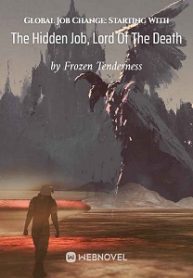Life of Being a Crown Prince in France - Chapter 114
- Home
- Life of Being a Crown Prince in France
- Chapter 114 - Chapter 114 Chapter 113 Political Foundation
Chapter 114: Chapter 113: Political Foundation
Please continue reading on ΒOXΝʘVEL.ϹΟM .
The participants of the salon were mainly the emerging Capitalist Nobility, as well as a few enlightened members of the Old Nobility and entrepreneurs.
Lady Ebel warmly instructed her servants to attend to the guests, but her eyes were constantly on Mirabeau, who was passionately giving a speech.
This time the salon was essentially a conference for Mirabeau’s speech—he was expounding on the industrial development ideas that Joseph had shared with him yesterday. He had spent the previous afternoon organizing them and had memorized them overnight, just to present them to everyone today.
No one contested him for the right to speak, and someone would urge him to continue as soon as he paused even for a moment.
Mirabeau, with his inherent calm, imposing, and compelling style of oratory, portrayed to those present the vast future of the French industry as depicted by Joseph.
Around him, some listeners were so moved that they clenched their fists tightly.
Others appeared contemplative, nodding their heads from time to time.
Even more were staring intently at him, with excitement dancing in their eyes.
It wasn’t until twilight that Mirabeau’s voice became somewhat hoarse, and people finally let him be and began to discuss in small groups:
“There will be many opportunities in Nancy in the future, I must go there to open a workshop.”
“What do you think, can the tax reduction mentioned by the Crown Prince be implemented?”
“As long as His Majesty the King signs the bill, we must use all our efforts to ensure the High Court passes it!”
“If all the points mentioned by His Highness can be realized, France will indeed welcome a new glorious chapter!”
(vitag.Init = window.vitag.Init || []).push(function(){viAPItag.display(“vi_765923973”)})
“I heard the ‘Eden Treaty’ will be amended as well, this really is a great investment opportunity.”
After drinking several glasses of wine, Mirabeau’s throat finally felt a bit better, and he casually brought up the Crown Prince’s intention to promote the cultivation of potatoes, which was short of funds.
Immediately, a middle-aged nobleman stood up and said, “Count Mirabeau, I can lend 100,000 livres to His Highness the Crown Prince without interest, please pass on my message to His Highness.”
Once someone took the lead, there was a crowd of respondents:
“I happen to have some spare funds recently, and can lend out 200,000.”
“I am planning to invest in Nancy, so I can only lend 100,000 livres to His Highness.”
“I also can…”
Although these individuals were quite wealthy, sums of ten to twenty thousand livres were not insignificant amounts for them.
However, after listening to Mirabeau’s speech, they all regarded the Crown Prince as the hope for the industrial sector of France, and even for policy adjustments, naturally offering him their full support. Besides, Mirabeau said that the Crown Prince was using Paris Angel Company as collateral, so there was no risk in lending the money.
Before long, including Mirabeau, this group of affluent Capitalist Nobility had put together 1.8 million livres. A few others also indicated they had resources at their disposal to help with the procurement or transportation of potatoes.
After this small interlude, everyone began to enthusiastically discuss topics like industrial development zones or industry chains, until they parted late into the night, still not ready to leave.
Joseph had no idea that, with this salon as a landmark, his future political foundation was beginning to take shape.
…
Paris Police Academy.
The training ground, shrouded in dust, had two people standing on a viewing platform, taller than most men, on its eastern side. One of them wore the blue uniform of the Paris Police, while the other was in white military attire; however, from the insignias on their collars, they both held the rank of Major.
The man in white military uniform appeared to be in his thirties, with a high bridged nose and a touch of melancholy in his light blue eyes.
He watched the police academy cadets training in shuttle runs through the dust and asked the officer beside him with some perplexity, “Francois, what’s the point of them running back and forth like this?”
The one addressed was Dibowa, who, after distinguishing himself in the Netherlands battle, had been poached by Joseph directly from the award ceremony to the police academy.
Dibowa laughed and said, “Alexander, this is called a shuttle run, a standard training exercise in the police academy curriculum, which can improve the soldiers… ahem, the police officers’ physical strength and reaction capabilities.”
Alexander voiced his skepticism, “Is this effective? Shouldn’t they focus more on drilling formation?”
“Formation drills are just the basics. Shuttle runs can significantly improve the police officers’ speed in charging and turning.” Dibowa pointed to the other end of the training ground, “Oh, look over there. That’s called pull-ups; every officer has to do dozens of those daily to increase arm strength. You know, on the battlefield, they often need to hold a gun for hours, and this exercise keeps their shooting steady.
“And that one…”
As he was speaking, a troop of police officers ran into the training ground entrance shouting slogans, kicking up even more dust.
Dibowa immediately showed a proud expression and gestured towards the group of officers, “Aha, do you know? Those officers just went through the most ‘brutal’ training exercise—four kilometer cross-country run while armed.”
Alexander exclaimed, “You mean they just ran four kilometers?!”
Dibowa nodded, “That’s right, and they had to complete it within 15 minutes.”
Alexander’s eyes widened in shock.
Four kilometers is equivalent to one farthing! Even the most elite soldiers couldn’t possibly run such a distance within 15 minutes!
However, Dibowa continued to “stimulate” him, “Each one carries only an 18-pound load.”
He expressed dissatisfaction, “The Crown Prince expects at least 25 pounds, but these guys, alas, still haven’t reached that level; they need more intensive training.”
Alexander tried to appear composed, “Are you saying these drills were requested by the Crown Prince?”
“Indeed, as I mentioned in my letter to you. The Prince has devised many novel military theories, and the same goes for training. Honestly, I also didn’t understand why we had to train like this initially.”
Dibowa showed a triumphant look again, “But soon, I understood; the officers trained according to the Prince’s requirements improved significantly in both formation and stability.”
In this era, soldiers placed a great emphasis on formation drills but mostly skimped on physical fitness training.
Yet, in reality, only those with robust physical strength can easily execute various formations and transitions. After military theory developed into the modern era, no army dared to neglect physical fitness training.
Jospeh naturally instilled the correct concepts directly into his troops.
Alexander watched the officers in blue uniforms pick up wooden rifles and begin to drill into line formations on the training ground and couldn’t help but wonder, “Francois, aren’t they police officers? Why are they practising this? Do they have to face Parisian gangs with infantry lines?”
A peculiar smile spread across Dibowa’s face, “Ahem, in fact, only the cadets with the worst grades are assigned to be policemen.”
“Oh? And the others?”
Dibowa quickly changed the subject and muddled through. There was a rule at the police academy: the information that elite cadets were trained according to military standards was not to be disclosed to anyone.














